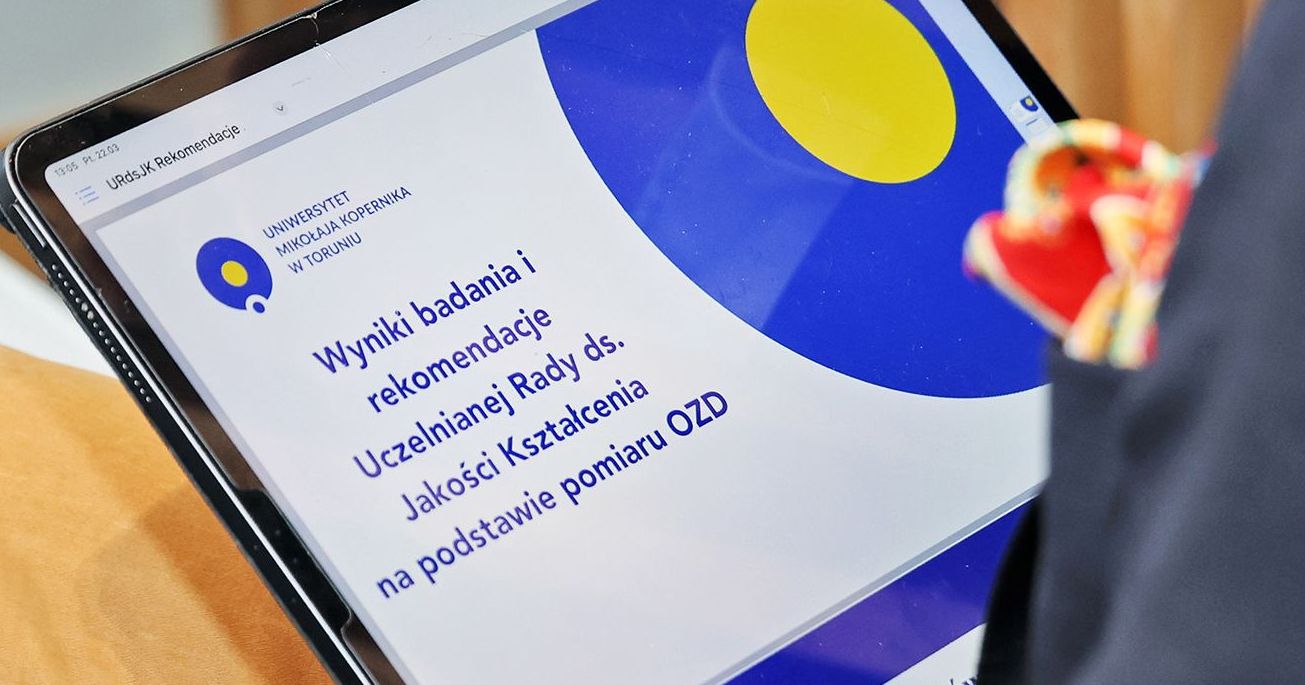 Campus life
Campus life
Towards the improvement of quality
– People trust no authority. It is reflected in a low response rate of surveys which monitor the quality of education. University staff and students put it simply: "I have no sense of agency, I do not believe my opinion can change anything". This is a problem we are facing, says dr hab. Rafał Moczkodan, Prof. NCU, Head of the University Council for Quality Assurance.
The Internal Quality Assurance and Work Organization System implemented at the Nicolaus Copernicus University promotes regular monitoring in several areas: the evaluation of didactic classes, staff and student satisfaction, meeting expectations related to taking up studies at the NCU as well as fates of the NCU graduates. Based on the survey analysis results, the University Council for Quality Assurance formulates recommendations and indicates key areas in which improvement is required. It also advises solutions which are worth implementing. The recommendations are classified into two groups, i.e. those which are possible to introduce at a faculty level and those which should be implemented by the Rector's authorities.
This year, there are fewer recommendations submitted to the NCU authorities than in previous years.
We will not solve all the problems, we will not focus on each single individual case because we are incapable of doing so. Instead, we pay attention to issues which are most frequently mentioned or referred to as most essential, says dr hab. Rafał Moczkodan, Prof. NCU, Head of the University Council for Quality Assurance. In agreement with dr hab. Monika Wałachowska, Prof. NCU, the Vice-Rector for Student Affairs and Education, we have made a decision to reduce the number of recommendations to five. Up till now, the number was higher, but we have come to the conclusion that handling fifteen issues at once is simply not feasible, and we do not intend to simulate actions. The multitude of recommendations results in difficulties with verifying the degree of their implementation. And we are planning to check it. Next year, in March, we will present the specific data and indicators of what has been successfully changed.
Sense the agency
The unsatisfactorily low survey response rate is one of the most serious issues. For the evaluation of didactic classes survey it is 16.64 per cent, for the employee satisfaction survey, the number is slightly higher – 24,32 proc.
– People trust no authority. It is reflected in a low response rate of the surveys. Statistically, one person out of five is willing to share his or her opinion. It is not enough. Many people, in their view, gain no tangible benefits, and thus, they do not feel like making an effort, explains Prof. Moczkodan. It is a big problem we have to face.
In May, the NCU student satisfaction survey started. Its purpose is to assess the level of student satisfaction concerning the infrastructure, administration, internal communication, study programme as well as didactic classes and further apply the results to improve the functioning of the University. Each student will receive the questionnaire link on their student e-mail account. The survey is anonymous and completing the questionnaire should not take longer than 10 minutes. The survey will last until September 30, 2025 and is carried out pursuant to Order No. 211 of the Rector of Nicolaus Copernicus University of October 24, 2023.
For the University authorities, the problem is clearly visible. Prof. dr hab. Andrzej Tretyn, the Rector of the NCU, drew attention to problem and in his letter addressed to the University staff he emphasized the necessity to promote participation in completing the survey. In his view, too low response rate results from lack of sense of agency.
We need to put much effort both on the level of the University authorities and on the level of individual teachers staying in contact with their students to change such an attitude. It is the key issue because it influences the trust we all put in the system, emphasized Prof. dr hab. Andrzej Tretyn, the Rector of the NCU in his letter. I want to assure you that all of us, if only we want, can influence what kind of workplace our University is. We can achieve it in a number of ways, but participating in surveys is one of the simplest of them. Moreover, if the response rate is sufficiently high, a chance for any change becomes real.
The Gaussian curve
From the analyses of the survey results performed by the Council it can be concluded that the responses come from either those most satisfied staff members and student or those who are least satisfied. Extreme situations are best memorized, so the participants either gladly highlight strengths and advantages in a given field or point out glaring mistakes and areas requiring improvement.
Unfortunately, unwillingness to complete the surveys also results from certain lack of understanding concerning specific mechanisms of functioning at the University. Students and staff report demands for better equipment, e.g. computers or lab equipment, toilet renovation or window replacement. If their suggestions do not bring effects, they do not know whether the authorities, either Dean's or Rector's authorities, will actually tackle these issues, whether they have at least discerned a given problem. This, in turn, causes resentment and reluctance to participate in another survey, explains Prof. Moczkodan. Moreover, it is impossible to make all changes at once since they require time and funds which are limited at the University. More understanding is needed that some changes do not take place due to lack of good will, but due to lack of financial or organizational possibilities.
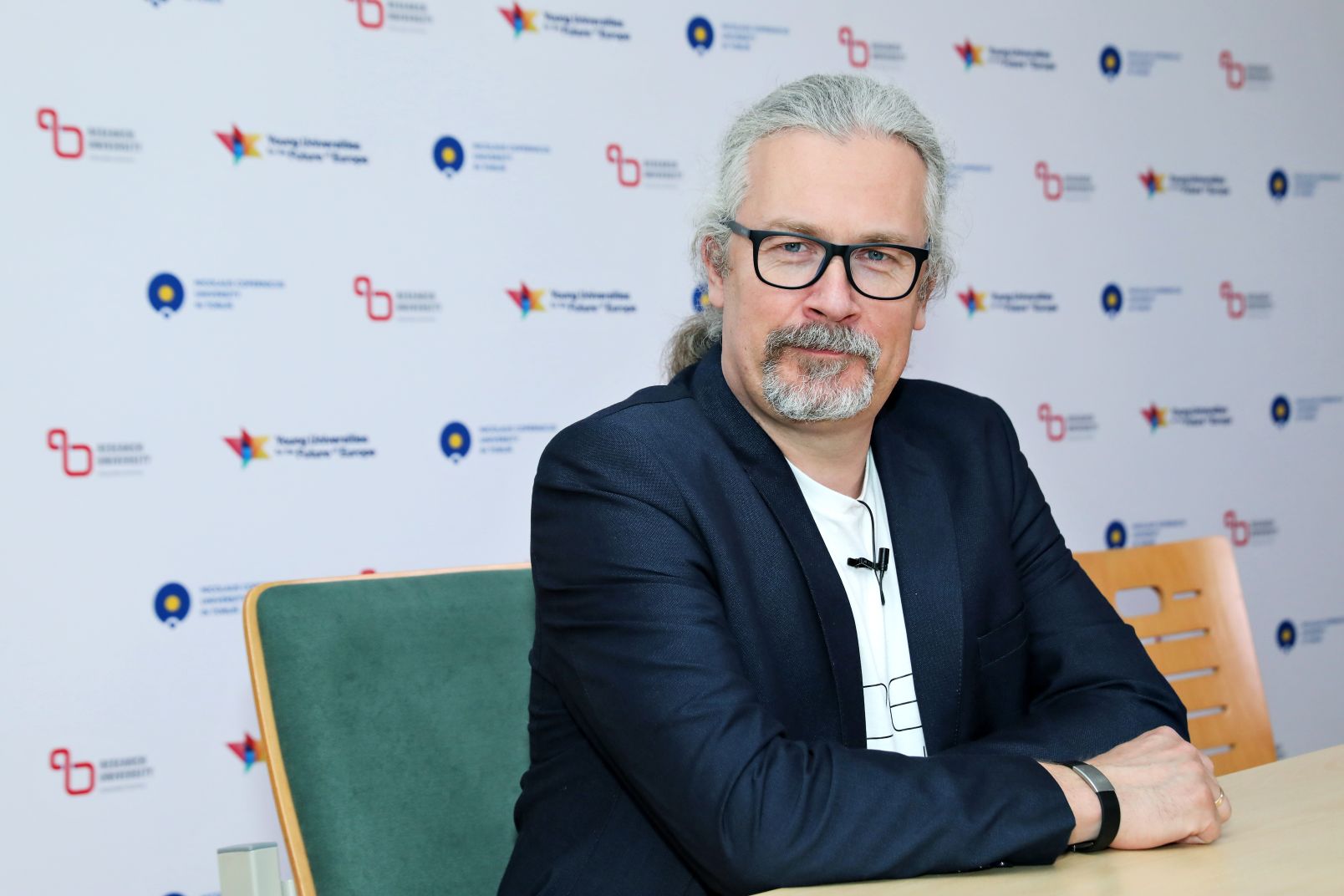
Therefore, as the Council emphasizes, it is so essential to show the NCU community that their voices matter, data collected from the surveys are analyzed, recommendations are formulated, and finally, the execution measurement will be presented. Everyone will be able to check which recommendations and to which extent have been implemented. It will allow the community to feel the agency and see the effects of completing surveys.
Benefits for surveys
One of the Council recommendations concerning contribution to the evaluation of didactic classes is to reward the community of the most active faculties.
The Rector's College is very supportive of the idea. Together with the Student Government, we are planning to discuss which form of benefit will be most suitable, says dr hab. Monika Wałachowska, Prof. NCU, Vice-Rector for Student Affairs and Education. The proposal is an additional Rector's day for three most active faculties. There are also other ideas, including a financial rewards for faculty governments, which will independently decide how to spend the granted funds. We will not impose anything, and the form of gratification will be worked out together with students.
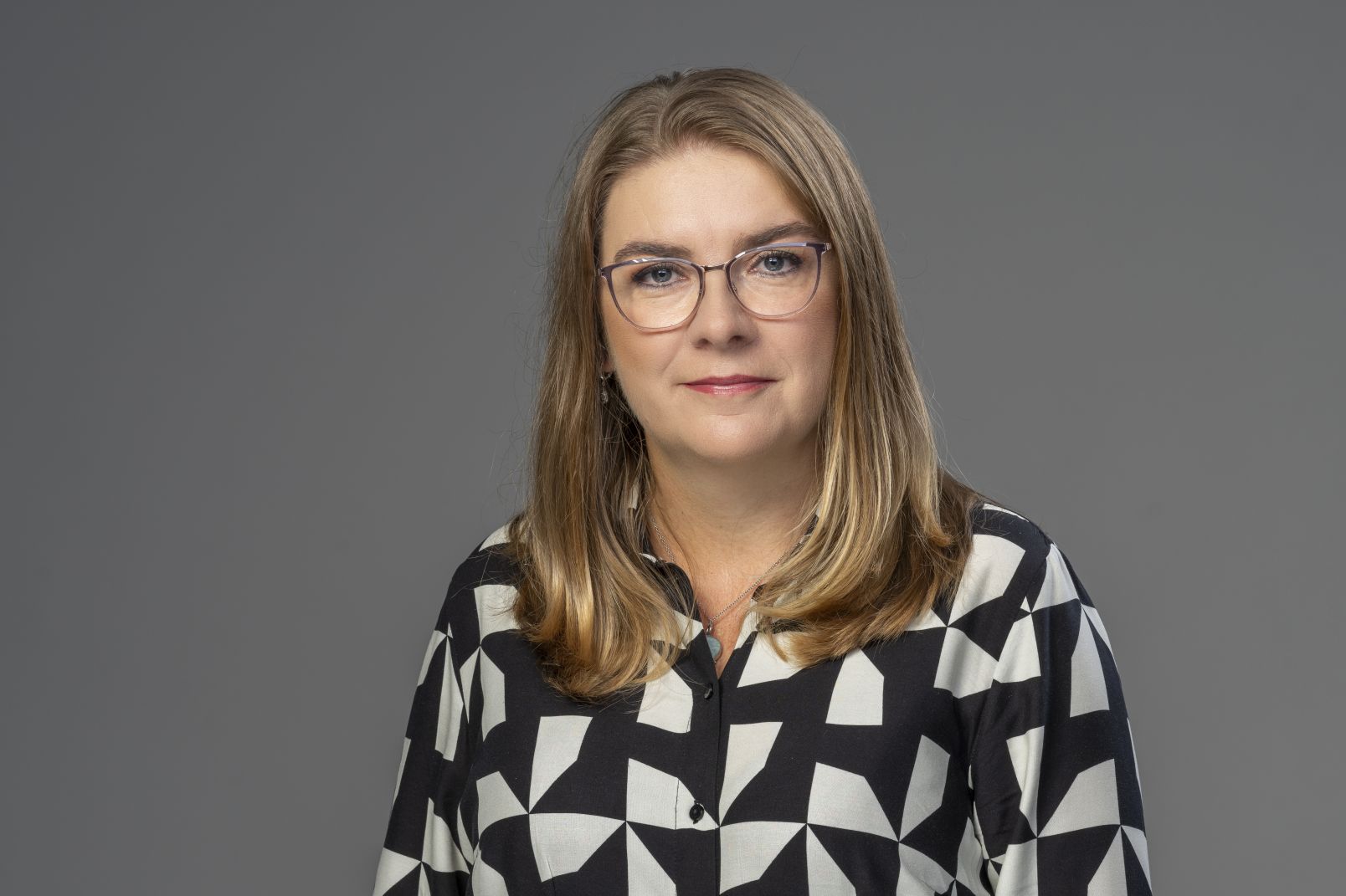
Vocational University
In the evaluation of didactic classes and fates of the NCU graduates surveys participants point out that, in their views, the proportion between practice and theory in study programmes is inappropriate. The NCU authorities observe and recognize the importance of the problem. In cooperation with faculties and students, a strategy aimed at solving this problem will be developed. The initial actions have already been taken: a new course of study, Renewable Sources of Energy, has been established which will enable studying according to the project based learning method.
A profile of students' expectations is visibly changing. Young people come to a university with significantly higher expectations regarding gaining professional competences rather than university knowledge in the old-fashioned manner. It is something that forces changes and we must react to it, says Prof. Moczkodan.
We notice students' expectations, and faculty authorities react to them; numerous Senate sessions are dedicated to changes in study programmes. It is difficult, however, to introduce more practice overnight, says Prof. Wałachowska. Practical skills and competences can be acquired within the virtual YUFE campus, and which are additionally confirmed with micro-credentials. This is the future: crash courses giving both ECTS points as well as certificates.
Staff gripes
University employees express their dissatisfaction in three fundamental areas: salaries, relations with colleagues and supervisors as well as general satisfaction from the performed work. The Council indicated two crucial issues (most frequently indicated in surveys) related to this area and formulated recommendations for them.
In both, the evaluation of didactic classes and employee satisfaction surveys, participants declared the need to improve qualifications and skills. University staff and students expect that adequate courses and training will be offered by the University. The authorities are considering increasing their number and possibilities of their financing.
Our idea is to establish a unit tentatively called "the educational excellence center" which will offer courses for all the university staff members as well as students. We are working on a project which we hope will start in the beginning of 2026. The aim of the unit would be to assemble resources which already exist at the University but which are still insufficiently used, says Prof. Moczkodan. Firstly, we want people to share competences they have already gained. Secondly, we want to provide staff with training in skills which we do not have and which are desirable.
The Open University can become such a platform in the near future. In our assumptions, it will be directed not only outwards but also inwards – to our community. The offer will largely correspond with our University needs, adds Prof. Wałachowska
The Vice-Rector emphasizes the fact that there is a lot already happening in this area and the authorities respond to the NCU employees' needs. Training sessions e.g. in the AI use at university have just started, and they are currently the priority because different groups of staff members expressed their willingness to acquire competences in this area
As the Council points out, the survey participants' biggest gripe is the uneven distribution of responsibilities among employees while maintaining the same salary level. It concerns all the groups of employees.
Some part of employees has a sense of excess in the amount of tasks performed, which is additionally connected with lack of proper remuneration. In this case, a satisfactory solution should be found after prior analyses and in cooperation with trade unions, says Prof. Wałachowska.
It is difficult, but if we managed to change that, I think it could be a clear signal that they have agency, the authorities listen to them. It is a visible problem employees draw our attention to, and therefore, we have recommended addressing this issue to the Rector's authorities, adds Prof. Moczkodan.
Checking!
The University Council for Quality Assurance, just as its term started (2024-2028), set three main goals.
Firstly, we want to search for and find solutions which will result in higher response rate for surveys. From our viewpoint, the key to achieve it is to improve communication, who commits to what and what results it brought, says Prof. Moczkodan. Secondly, recommendations have to be addressed to the right people with the appropriate level of competences and responsibilities. And a verification mechanism has to be developed. If we manage to combine it into one a well-functioning mechanism (I assume we need two years), we hope it will contribute to greater trust in the authorities.
The Rector's authorities assure us that they will make every effort to implement the recommendations, and therefore, the quality of education will increase.
I want to assure you that me and my team are determined to improve the system whose primary aim was to constantly increase both the quality of education as well as your satisfaction resulting from learning and working. I declare to present the results of the activities in this area by providing qualitative and quantitative indicators in March 2026, declared Prof. dr hab. Andrzej Tretyn, the Rector of the NCU in his letter addressed to the University community.
Key recommendations of the University Council for Quality Assurance based on the results of the evaluation of didactic classes, fates of the NCU graduates, and the employee satisfaction surveys
1. Change in the functioning of recommendations
Recommendation: Each year, the University Council for Quality Assurance submits no more than five key recommendations to implement. The recommendations concern the level of the University and do not involve measures which can be taken by Dean's Offices of particular faculties.
2. Activities undertaken to increase the response rate in the evaluation of didactic classes surveys for students
Recommendation: The University Council for Quality Assurance recommends developing, in cooperation with the Student Government, a form of reward for students of the faculties which will reach the highest response rate in surveys. The reward should be an additional day off (the so-called Rector's day) announced on a day agreed with the Dean of a given faculty. For instance, three most active faculties can be rewarded (taking into account all of them) or the best faculty from Bydgoszcz campus and two with the highest rates from Toruń campus
3. Training for employees (including administration staff), students as well as doctoral students
Recommendation: The University Council for Quality Assurance recommends the establishment of a general university unit assembling a professional educational and training team recruited from the University staff which would also coordinate activities aimed at building a training base and conducting educational tasks within possibilities (both external and university funds).
4. Practical character of didactic classes, student internships
Recommendations: 1. Change in the field of communication with students - the implementation of recommendations of the Team for the Implementation of the Operational Objective II.3 (17.01.2024 r.) concerning tabs which are to be introduced on the main NCU webpage (For business, Internships, Graduate works and student projects carried out in cooperation with external entities)
2. Development of strategies for increasing the share of a practical dimension in basic education (in cooperation with Dean's Offices).
5. Assessment of work contribution
Recommendations: In agreement with trade unions, developing a method of measurement and recognition (rewarding) of differentiated responsibilities.
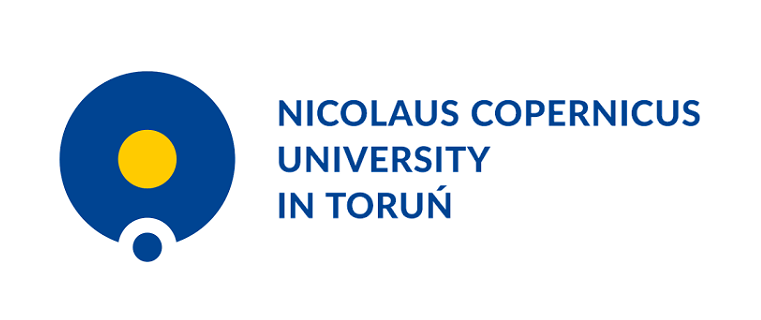 NCU News
NCU News






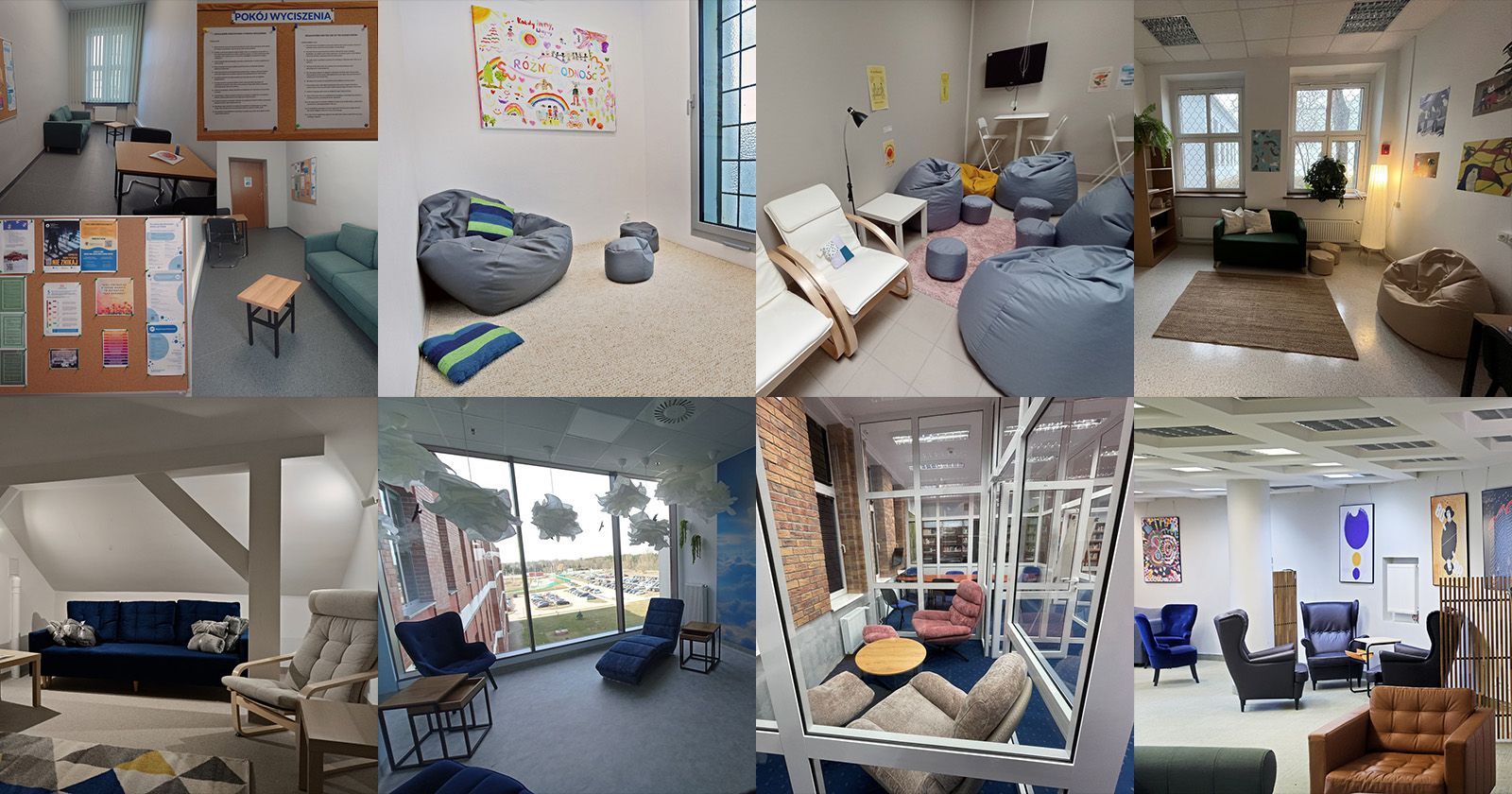 Campus life
Campus life
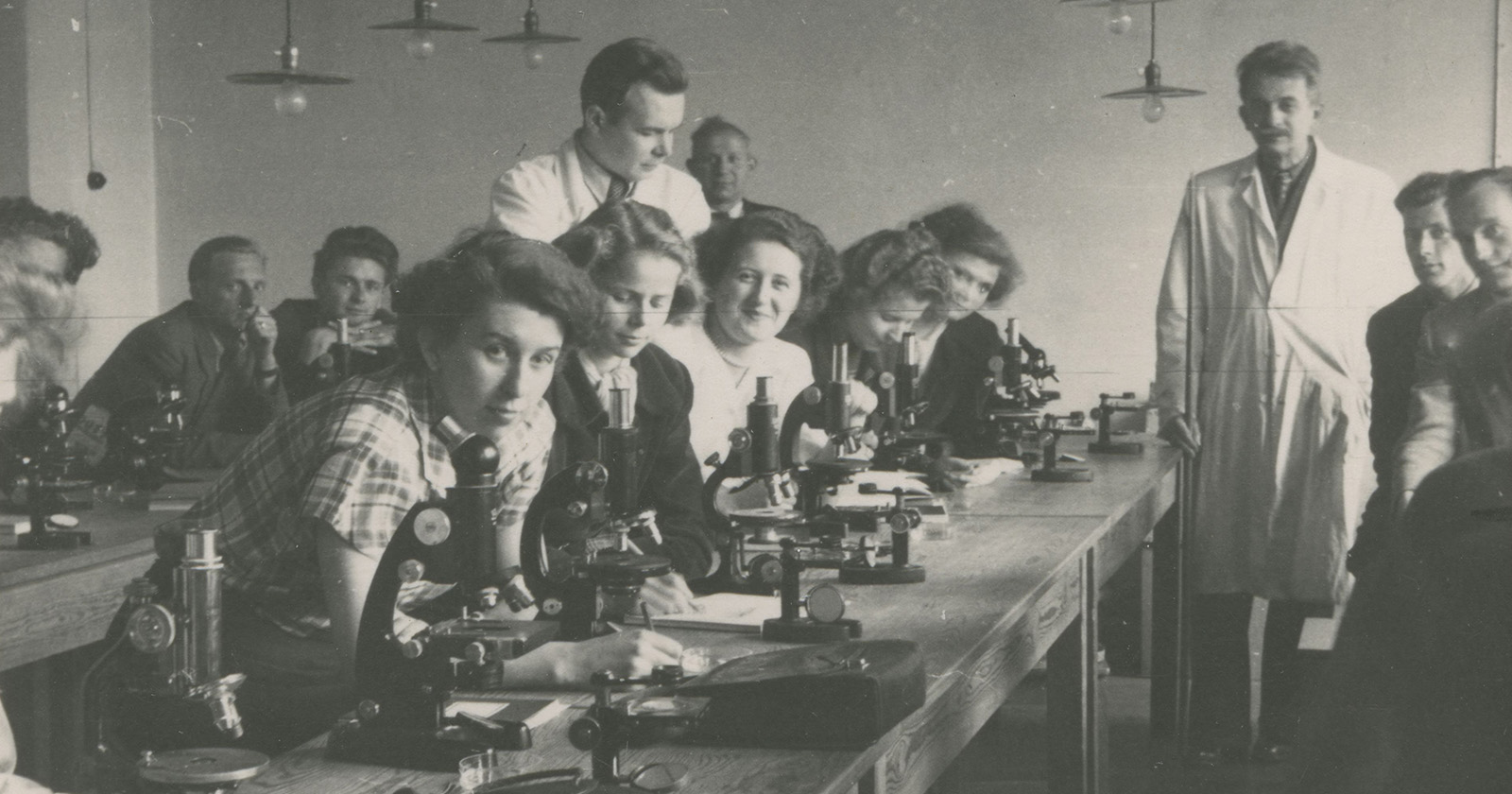 Campus life
Campus life

 Campus life
Campus life
